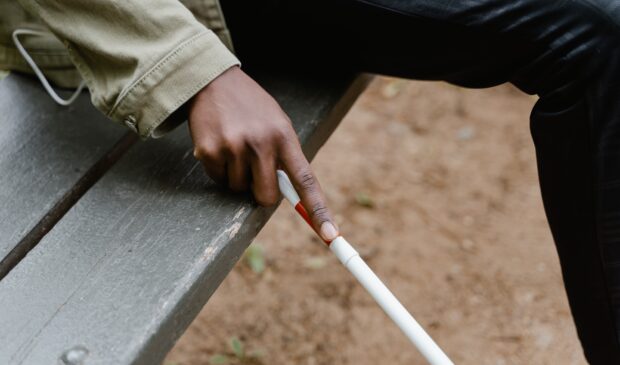APD pushed to improve training, engagement with Austin’s disabled community
Thursday, October 12, 2023 by
Chad Swiatecki Disability advocates in Austin want the Austin Police Department to include training and research on the lives of people with disabilities as part of basic academy education, while encouraging department staff to build stronger relationships with the local disabled community.
Those were some of the recommendations included in a recent report from the Office of Police Oversight that summarized the findings from a handful of feedback sessions with dozens of attendees and hundreds of data points on police interactions with disabled residents.
A memo released on Tuesday from Gail McCant, director of the oversight office, explains to City Council members what was learned from two 2020 community feedback sessions and a follow-up town hall in June 2022.
The findings from those events sit alongside other recent studies regarding APD interactions with those with disabilities, including mental illness. In 2018, the city auditor conducted an analysis of APD’s handling of incidents requiring mental health response, and in 2019 Meadows Mental Health Policy Institute issued recommendations on how first responders should handle calls requiring mental health services. Also, Kroll Associates has compiled regular reports on APD’s use of force and public interactions, including those involving mental health considerations.
One of the new recommendations calls for APD to provide regular updates to the public on its progress in implementing the actions and findings from the many existing reports.
The new report also calls for APD to make improvements to data collection involving interactions between officers and people with disabilities, beyond those involving mental illness. The police oversight office is also called on to specifically review complaints submitted by people identified as having a disability or involving key phrases such as “assistive technologies” or “service animals.”
Disability advocates also asked APD to collect more data about the lived experiences of people with disabilities to improve the department’s understanding of the challenges they face.
Relating to community outreach, the report tasks APD with identifying staff who can focus on building positive relationships with disabled people.
Those interactions could include service and care providers, family members and others involved in disability networks to identify how the police can better meet their needs.
The department is also recommended to hold multiple community engagement events each year to share needs and concerns, with officers encouraged to find ways to increase their level of interaction with disabled residents.
In addition to expanding training to include disability-related research, the report calls for APD to encourage officers to pursue professional development opportunities that “strengthen their ability to make meaningful connections with (disability) community members,” with the goal of developing empathy and understanding.
Comments and summaries from the 2022 town hall show many attendees said they have a high level of fear and vulnerability when interacting with law enforcement. Other concerns involved APD not offering adequate training on how to best communicate with or assist someone with a disability.
McCant said APD now has clearly stated areas to improve, with the oversight office on board to monitor progress. She wrote, in part: “While this report highlights many areas for improvement, there are even more opportunities to build trust with community members and demonstrate a commitment to safety for all. OPO will continue to work with community members, APD, and City leadership to enhance safety and improve interactions between APD and people with disabilities.”
Interactions with police have been a regular area of concern for the Mayor’s Committee for People With Disabilities, with training and knowledge gaps being pointed out routinely.
The new report, which came more than a year after the town hall event it is tied to, is not on the agenda for this week’s meeting of the committee.
The Austin Monitor’s work is made possible by donations from the community. Though our reporting covers donors from time to time, we are careful to keep business and editorial efforts separate while maintaining transparency. A complete list of donors is available here, and our code of ethics is explained here.
You're a community leader
And we’re honored you look to us for serious, in-depth news. You know a strong community needs local and dedicated watchdog reporting. We’re here for you and that won’t change. Now will you take the powerful next step and support our nonprofit news organization?









